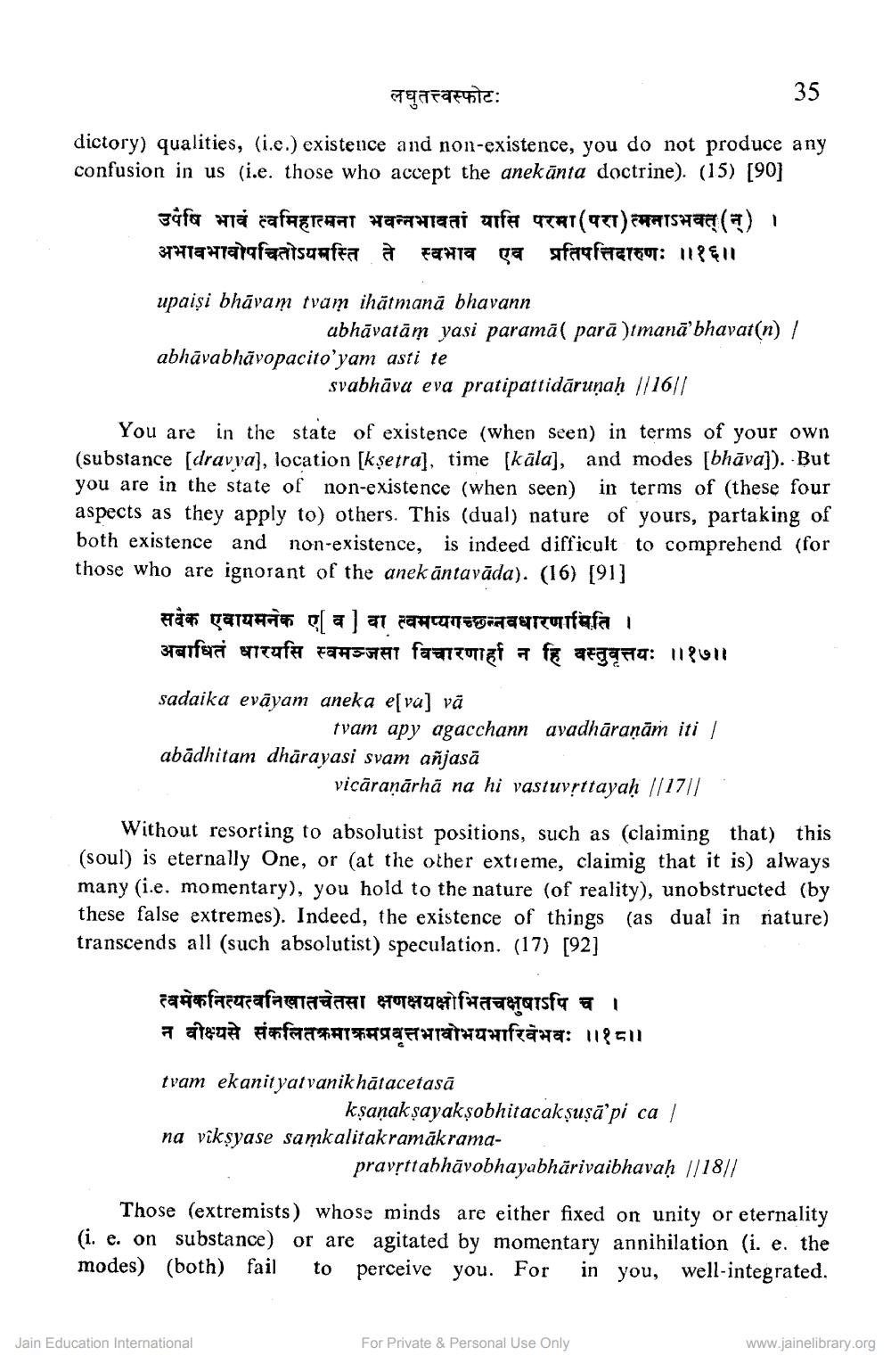________________
लघुतत्त्वस्फोट:
35
dictory) qualities, (i.c.) existence and non-existence, you do not produce any confusion in us (i.e. those who accept the anekānta doctrine). (15) [90]
उपषि भावं त्वमिहात्मना भवन्नभावतां यासि परमा(परा)त्मनाऽभवत् (न्) । अभावभावोपचितोऽयमस्ति ते स्वभाव एव प्रतिपत्तिदारुणः ॥१६॥
upaiși bhāvam tvam ihātmanā bhavann
abhāvatām yasi paramā( parā)tmanā bhavat(n) / abhāvabhāvopacito'yam asti te
svabhāva eva pratipattidāruņaḥ //161/
You are in the state of existence (when seen) in terms of your own (substance [dravval, location [kşefra), time (kāla], and modes [bhāva]). But you are in the state of non-existence (when seen in terms of these four aspects as they apply to others. This (dual) nature of yours, partaking of both existence and non-existence, is indeed difficult to comprehend (for those who are ignorant of the anekāntavāda). (16) [91]
सवैक एवायमनेक ए[व] वा त्वमप्यगच्छन्नवधारणामिति । अबाधितं धारयसि स्वमञ्जसा विचारणाहीं न हि वस्तुवृत्तयः ॥१७॥
sadaika evāyam aneka e va] vā
tvam apy agacchann avadhāraņām iti / abādhitam dhārayasi svam añjasā
vicāraṇārhā na hi vastuvșttayaḥ ||17||
Without resorting to absolutist positions, such as (claiming that) this (soul) is eternally One, or (at the other extreme, claimig that it is) always many (i.e. momentary), you hold to the nature (of reality), unobstructed (by these false extremes). Indeed, the existence of things (as dual in nature) transcends all (such absolutist) speculation. (17) [92]
त्वमेकनित्यत्वनिखातचेतसा क्षणक्षयक्षोभितचक्षुषाऽपि च । न वीक्ष्यसे संकलितक्रमाक्रमप्रवृत्तभावोभयभारिवेभवः ॥१८॥
tvam ekanit yatvanikhātacetasā
kṣaṇakşayakşobhitacakșușā'pi ca na vikşyase sa mkalitakramākrama
pravsttabhāvobhayabhārivaibhavah //18//
Those (extremists) whose minds are either fixed on unity or eternality (i. e. on substance) or are agitated by momentary annihilation (i. e. the modes) (both) fail to perceive you. For in you, well-integrated.
Jain Education International
For Private & Personal Use Only
www.jainelibrary.org




